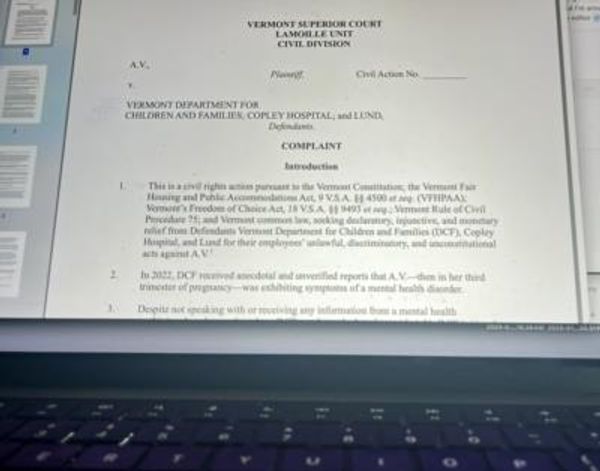
As a Brit living in Taiwan, I find myself wrestling two of the world’s biggest political dilemmas.
While Taiwan struggles with its relations with the massive anti-democratic superpower just across the water, which is seeking to undermine its national sovereignty altogether, the United Kingdom is doing much the same thing.
I’ll put my cards on the table first: I support Taiwan’s right to democracy, self-determination, and reject Communist China’s flawed sovereignty claims over Taiwan. I also support the U.K.’s democratic decision to leave the undemocratic European Union and to return sovereign powers to the British Parliament in Westminster before the EU’s underlying federalist agenda swallows up European national identities once and for all.
Despite respectively being the world’s oldest democracy and one of its youngest, both U.K. and Taiwan are facing remarkably similar electoral dilemmas. Both have newly created political parties that appear likely to rock the traditional political status quo – for better or worse.
Perhaps this is symptomatic of the complex situation that democracy is facing at the moment. But the stark similarities between the British and Taiwanese circumstances are worthy of a closer look.

Taiwan’s Electoral Reality Comes Down to a Single Issue: Sovereignty
Taiwan’s 2020 presidential election will likely be a de-facto referendum on relations with China.
Current President Tsai Ing-wen (蔡英文) has struggled in the polls throughout much of her time in office. She had to fight off stiff competition from within her own party to secure her nomination to run for the second term; it was the first time in Taiwan's election history for a sitting president to be challenged by her own party member.
But now Tsai is the official candidate for the Democratic Progress Party (DPP) and she is seeking to not only unite her party but rally the pro-independence movement behind her. Localist parties and groups have successively voiced their endorsement for Tsai to fend off the encroaching Chinese Communist Party (CCP).
Tsai’s success in rallying the pro-independence parties is largely due to her main rival, the KMT’s fiercely pro-China populist candidate, Han Kuo-yu (韓國瑜). His unashamed courting of Beijing and his support for the fictitious 1992 Consensus raise big concerns among those who fear unification with Communist China.
With grand promises, Han won last year’s Kaohsiung mayoral election in a sweeping victory. His popularity among the KMT supporters since swept through the rest of Taiwan in a “Han Wave.” Not only did he snatch the KMT nomination from Foxconn founder Terry Gou, but he also earned the endorsement from the chairman of the Chinese Unification Promotion Party, Chang An-le (張安樂).
As a candidate opposing Tsai, Han has rallied the pro-unification movement behind him.

The Third Factor: Taipei Mayor Ko Wen-je (柯文哲) and Taiwan People's Party
It sounds like a straight fight between Tsai and Han. But there’s an unpredictable entity: Taipei Mayor Ko Wen-je who has recently launched the Taiwan People’s Party (TPP) with the ambitious goal to change Taiwan's political culture.
Ko swept into the Taipei mayoral office in 2014 as an independent who’s above the political divide. He then won a second term despite a few controversies. His popularity among the median voters would undoubtedly sway the presidential election if he was to run.
However, Ko has yet to declare his plan for the 2020 elections. While Ko is unlikely to become president next year, he could well be the kingmaker with the new TPP.

Britain’s Third Factor: Nigel Farage and Brexit Party
In the U.K., the new Brexit Party is also fronted by a charismatic and controversial political figure, Nigel Farage. You may know him as the man who got attacked by milkshake — let's call him the British Ko Wen-je. Their politics may not align with each other's but their impact on the political establishment is.
Before heading the Brexit Party, Farage was an influential figure in pushing for Brexit as the leader of the U.K. Independence Party, a constant thorn to the establishment.
The Brexit referendum, the biggest popular vote in British history, took place over three years ago. It came back with a divisive result with 52 percent of the British voters supported leaving the EU. In the wake of that result, Farage resigned and said his “political ambition” was done.
But since then, Brexit has dogged British politics like a millstone around the neck.
Theresa May, who became Prime Minister shortly after the referendum, cautioned against the economic consequences of Brexit. Her entire negotiation strategy appeared built on the goal of honoring the referendum result but keeping Britain close to the EU — and she failed miserably. Her Brexit proposal was rejected by Parliament on no fewer than three occasions and she finally tendered her resignation earlier this year.
It was her failure to deliver Brexit that has led to the British Ko Wen-je, Nigel Farage, making a political comeback as leader of the Brexit Party.
Ko and Farage do not exactly share the same values but they do have one big thing in common — a determination to undermine the existing two-party political structure.
The Brexit Party’s sole objective is to deliver Brexit and it won the recent European Parliament elections which took place just four weeks after the party was formed. The governing Conservative Party came a humiliating fifth.

Britain's Electoral Reality Comes Down to a Single Issue: Brexit
After a humiliating defeat, the Conservatives are bouncing back under the new leadership of Boris Johnson. He is a different kettle of fish to his predecessor — he supports Brexit, campaigned for it, and is more than willing to leave without a deal if a good one can’t be struck.
He may not thank me for the comparison, but he is a bit like the U.K.’s Tsai Ing-wen, who is committed to delivering the promise of keeping Taiwan's independence.
Boris’ main problem is that his governing majority in the House of Commons has been reduced to one. With at least 30 of his own Members of Parliament (MPs) openly opposing his Brexit policies, Johnson is faced with a mission impossible to get his Brexit vision passed by the British Parliament. It will also ensure a tough battle for Johnson in the 2020 general election.
Like Taiwan, the U.K.’s general election is likely to come down to a single issue: Brexit.
The Conservatives under Johnson are committed to delivering Brexit at all costs, while the opposing Labour and Liberal Democratic parties are determined to keep Britain in the EU despite the referendum result.
In the middle of this fight is the Brexit Party and its impact is as unpredictable as that of the TPP.
The Brexit Party is committed to fighting every seat and is likely to take Brexit-supporting votes from the Conservatives. The party may also be popular among the Labour's traditional working-class voters who are in favor of Brexit as well.
Since the U.K. operates a “first-past-the-post” electoral system where a candidate with the most votes in each constituency gets elected, there is no proportional representation, which means these lost votes could prove decisive. Even if the Brexit Party doesn’t have a single MP elected, it could still prove the decisive factor in the election by taking votes away from the other parties.

Divide and Rule
It may be an ironic twist, but the most pro-Brexit political in the U.K. all could end up allowing the anti-Brexit parties to win an election. Meanwhile, in Taiwan, the TPP could have the same effect. If they opt for pro-China candidate Terry Gou (郭台銘), they could take votes away from Han and hand the election to the opposing DPP or vice-versa.
The key strategy in both the U.K. and Taiwan elections will be coordinating efforts to unite one's own side and divide the opposition. Yet the definitive power lies within the two unknowns.
For Ko Wen-je and Nigel Farage, it is decision-time. Do they want to prioritize their own political ambitions or the political agenda they espouse? Whatever they decide, in both the U.K. and Taiwan, it is an outsider who is likely to prove decisive in the forthcoming electoral battles. And neither country has been able to say that for a long time.
READ NEXT: Winter Is Coming: Who Will Survive Taiwan's 2020 Game of Thrones?
TNL Editor: Daphne K. Lee (@thenewslensintl)
If you've enjoyed this article and wish to receive more story updates, please be sure to like our Facebook page below.







